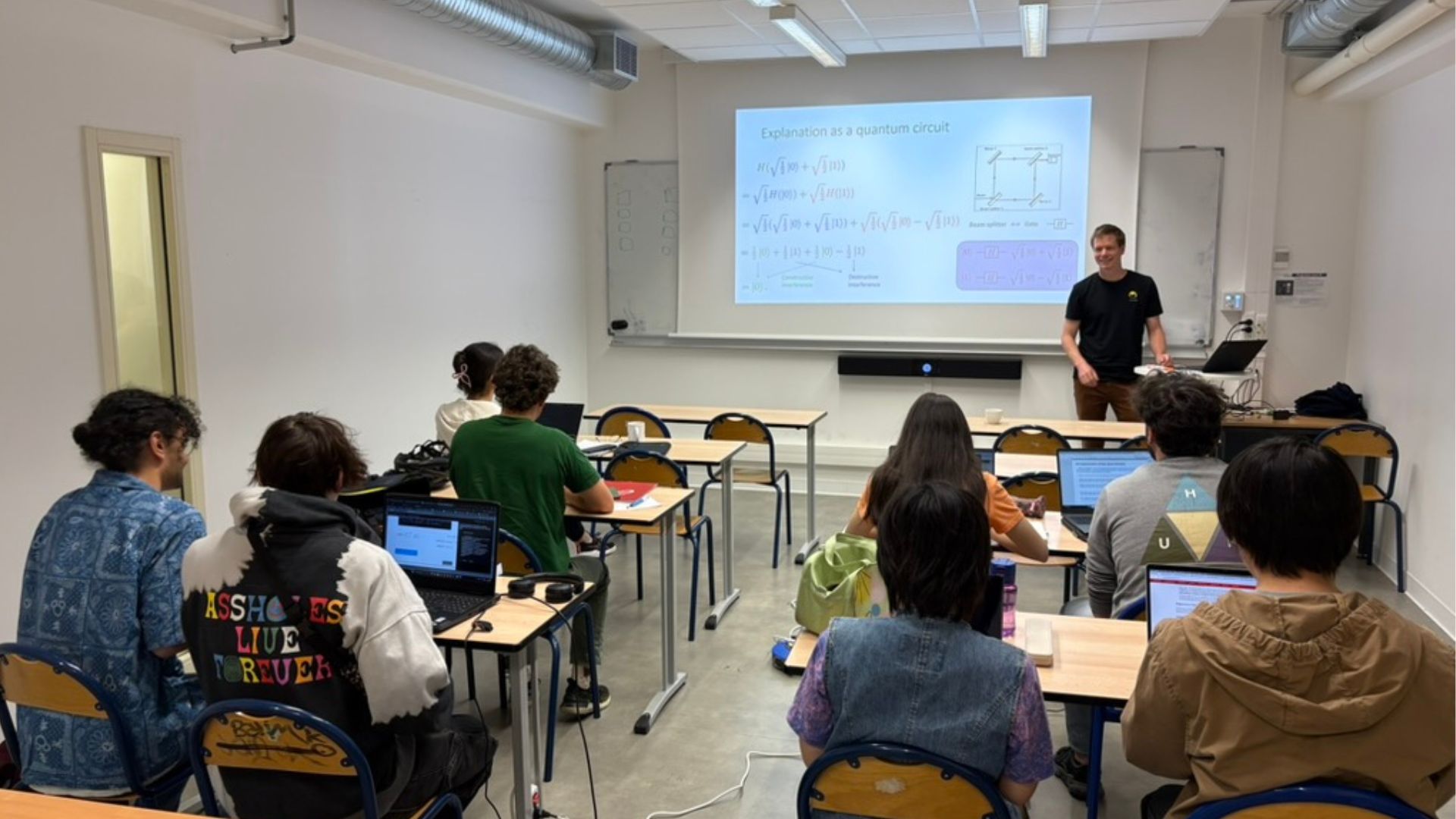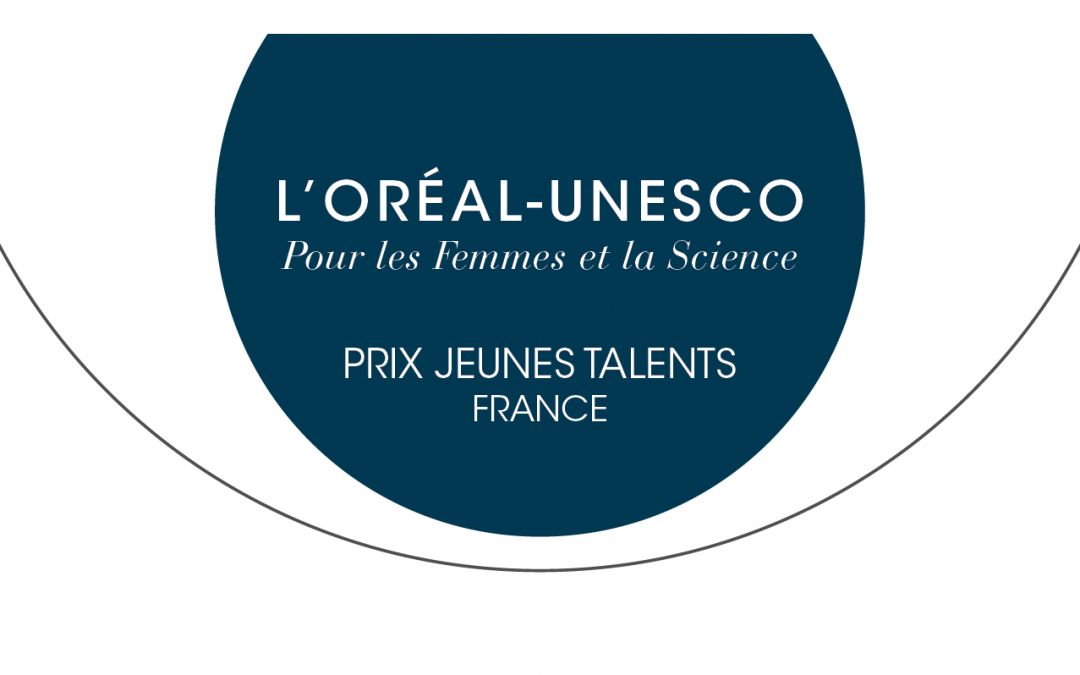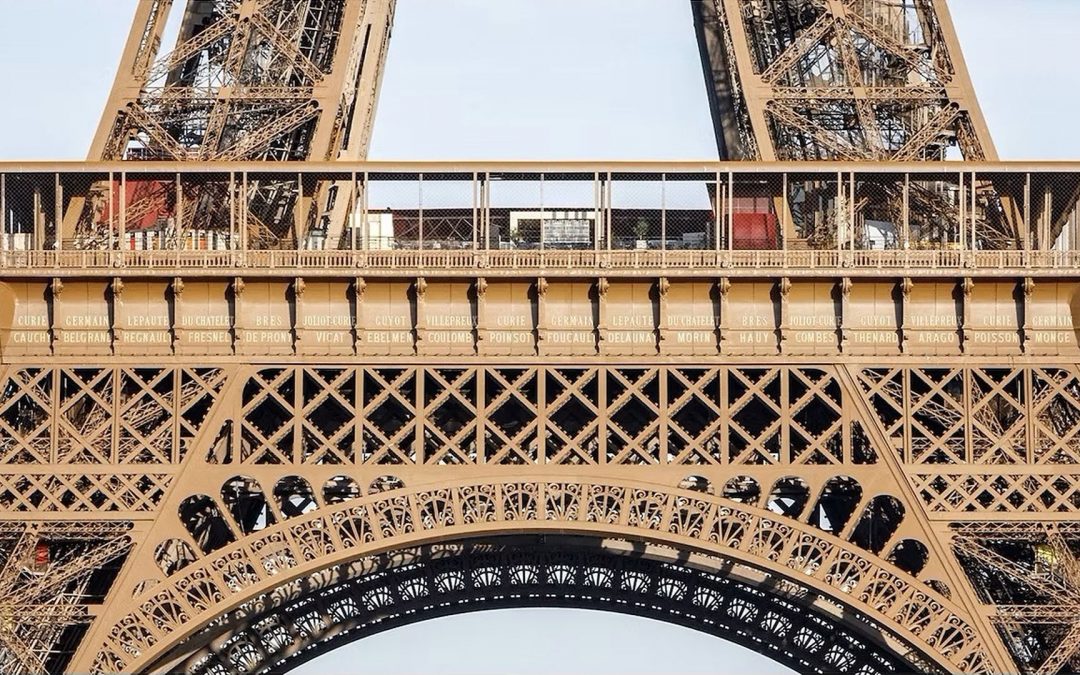The Graduate School Quantum Technologies of Université Paris Cité organised a one-day introductory session on quantum programming, led by Vivien Londe, a quantum computing specialist.

Attendees included interns from the Graduate School’s two masters programs, PhD students from the Institut de Recherche en Informatique Fondamentale (IRIF) and the Matériaux et Phénomènes Quantiques (MPQ) laboratory, and IRIF post-docs.
During the day, they had the opportunity to learn how to code well-known quantum algorithms using a quantum software development environment.
No prior knowledge of a quantum programming language was required, only a basic knowledge of the Python programming language was recommended for accuracy analysis.
Understanding a key concept: “phase estimation”
The morning session was dedicated to a fundamental algorithm in quantum computing: “phase estimation”.
Quantum computing specialist Vivien Londe showed students how this algorithm works, making it one of the most important quantum algorithms for chemistry.
Let’s pratice: “Hamiltonian simulation”
The afternoon session introduced students to Hamiltonian simulation. How does it work? Use a quantum system that we control well (the quantum computer) to simulate another quantum system that we want to investigate.
An instructive session appreciated by students
“It was an excellent opportunity to get an overview of some key concepts in quantum programming and to start working with quantum programming languages. Fundamentals as well as more specialized topics were clearly explained.” Student attendee
“The session is very well designed. I appreciated the simplifications made to the content, for example the implementation of a simple example of phase estimation instead of the more general version, which is very instructive and makes the session more accessible. I also really liked the illustration of phase estimation with the analogy of water waves and light beams.” Student attendee
À lire aussi

Téléchargez MyUPCité, la première version de l’application étudiante de l’université
L’Université Paris Cité lance MyUPCité, votre toute nouvelle application mobile étudiante, dans sa version test. Celle-ci propose déjà plusieurs fonctionnalités clés pour vous simplifier le quotidien et sera progressivement enrichie grâce aux retours des étudiantes et...
read more
Prix Jeunes Talents France L’Oréal-UNESCO Pour les Femmes et la Science : Appel à candidatures 2026
La Fondation L'Oréal, en partenariat avec la Commission nationale française pour l'UNESCO et l'Académie des sciences, déclare officiellement ouvert l'appel à candidatures de l'édition 2026 du Prix Jeunes Talents France L'Oréal-UNESCO Pour les Femmes et la Science :...
read more
International Day of Women and Girls in Science: celebrating the women who push research forward
February 11 was the International Day of Women and Girls in Science. On this day, Université Paris Cité reaffirms its commitment to the equality between men and women and celebrates the journey of the women who advance research. Between celebrating our heritage and...
read more
Suivi des maladies chroniques : un patient sur deux serait ouvert à la téléconsultation
L’étude REACTIVE, coordonnée par la Dre Tiphaine Lenfant et le Pr Viet-Thi Tran et menée par des équipes de médecine interne de l’hôpital européen Georges-Pompidou AP-HP, du centre d’épidémiologie clinique de l’hôpital Hôtel-Dieu AP-HP, de l’Université Paris Cité, de...
read more